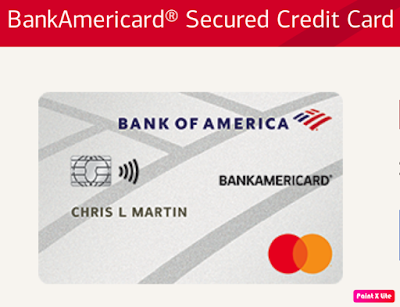Getting a credit card in United States without Credit History is like Chicken and Egg problem. You cannot get a credit card without having a good credit history and you cannot have a good credit history without having a credit card.
Unlike many countries where Credit Card is not so common, people in United States heavily rely upon their Credit Card. Even Financial Institutions offer incentives for paying with Credit Cards. Credit card comes with a lot of advantage when managed properly. You can get great cash back offers, discounts and even special privileges like Rental Car Insurance, Lounge Access, Invites for special events etc. This article is not about advantages of having Credit Card, rather it is about getting one.
Credit cards are akin to cellphones, you just need it. It is no more a privilege. It is a basic necessity when living in United States. You can probably manage without having a cellphone but not without a Credit card. One may argue that you can manage with debit card, cash or PayPal/Zelle etc, it is like saying I can manage without a phone (Even basic one be it fixed line/land line or non smartphone ). Sure you can, but you are inconvenienced for sure. May be in 8-10 years from now, things may change where every one is paying in Digital Currency like Bitcoin etc. but not at the moment Credit Card rules the market.
Anyways if you are like me who moved in to US and struggling with the chicken and egg problem of figuring out the credit card and credit history etc. and been running around checking with banks/financial institutions for getting a credit card, then you have to come to the right place. If you have come to US as student then you should not have any problem as you will be able to get a credit card based on backing of your educational institution. Almost all colleges have tie ups with some or the other major credit card companies and they will even facilitate to get one during onboarding.
There are 2 ways I would recommend in getting a Credit Card without Credit History.
1. Secured Credit Card : Many banking institutions offer something called secured credit card where you have to deposit cash first and then based on the value of the deposit, a secured credit card is issued to you with a limit equivalent to your deposit. The pre-requisite is that you have to open an account with them and make a minimum deposit which covers security deposit for your account and credit card. Though the minimum deposit imposed by bank may not be much, would recommend depositing as much as you can as the maximum limit on the card is equal to secure deposit value and typically to build a good credit history, would recommend not to spend more than 30-40 % of available credit. Would recommend you to deposit at least $500-1000 to cover your monthly household expenses from your Credit Card. This secured credit card will have several benefits as well similar to a regular/unsecured credit card like cash back, rental car insurance etc. and at the same time help you build your credit history. Word of caution while spending on credit card as interest rate and late payment fees are usually much higher compared to a regular/unsecured credit card and you may end up paying unnecessary charges for your own moneyed this may affect your credit score as well.Usually the secured credit cards have lock in period of 6 months - 1 year by which you have will have opportunity to show financial discipline, reliability, credibility by make timely payments and not over spending etc. By the end of this lock in period if you have good credit history (Credit Score) established, then these institutions will return your deposit amount in full to your bank account and then increase the available limit of your credit card and decrease the interest rate, late payment charges etc.
If you do not have sufficient funds to make a deposit for secured credit card or not in a position to make a deposit to start with then #2 is the best option for you to get a credit card and credit history
Some of the major Banks offering Secure Credit card are : Bank of America (Recommended), Discover, First Progress, Open Sky etc.
Link to Apply for Bank of America Secured Credit Card:
https://www.bankofamerica.com/credit-cards/products/secured-credit-card/
2. Credit Unions : Credit unions are non-profit entities which are managed by members of the entity/union. Credit unions operate to help and cater to well being of members. Profits made by credit unions are usually used passed on to the member in the form of reduced fees, lower interest rates and higher savings rate etc. Unlike Banks, Credit Unions are governed by members and are usually very flexible and accommodative for new members without credit history.
There are many credit unions like ALLIANT, Baxter Credit Union (BCU), Digital Federal Credit Union (DCU) etc. who offer credit card once you become their member by paying a small fee (Usually $5 - $25) and open a checking account with them. Usually they offer a low interest credit card while charging low or no annual fees for credit card. The interest rates and late payment fees etc. also are lower compared to major banking institutions simply because it is not for profit organization. You will be able to get a basic credit card once you provide proof of employment, ID etc. The benefit offered by these credit cards usually are limited and do not provide many of the privileges doled out by the regular Credit Card companies. In fact most employers have a tie up with some or the other Credit Union or may have one of their own and going with these Credit Unions is lot easier and get higher limit on the credit card.
Once you have managed to establish a good credit score with your credit union credit card, you can apply for unsecured/regular credit card from banking/credit card institutions depending on wich card is best for your use or continue with your credit union credit card as depending on your credit score, income and usage, available credit limit also is increased from time to time.
Hope this article helped you in getting your first credit card and build your credit history. If you enjoyed reading this post or if this post was helpful to you please leave your comments for more such posts.
Disclaimer: The information in this blog post (“post”) is provided for general informational purposes only, and may not reflect the current law in your jurisdiction. No information contained in this post should be construed as legal advice nor is it intended to be a substitute for legal counsel on any subject matter. No reader of this post should act or refrain from acting on the basis of any information included in, or accessible through, this Post without seeking the appropriate legal or other professional advice on the particular facts and circumstances at issue from a lawyer licensed in the recipient’s state, country or other appropriate licensing jurisdiction.




